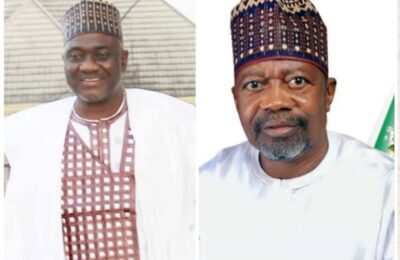Nigeria once carried a moral fragrance so rare that even power feared corruption. In 1960, our dawn of sovereignty; the nation stood on a pedestal of collective aspiration, buoyed by leaders whose names still re-echoes with reverence. It was an era when public office was not a feeding trough but a sacred trust; when politics was a vocation of honour, not a marketplace for parasites. Something happened along the way. Something corrosive. Something unholy. And Nigeria has been bleeding ever since.
The contrast between then and now is not merely generational; it is moral, spiritual, and structural. The early nationalists; imperfect yet principled; understood the solemn weight of service. Their vision was national, not tribal; patriotic, not predatory. They were statesmen who walked with the humility of custodians, not the arrogance of harvesters. Today, the political class resembles a colony of parasites feeding on a host that is steadily dying. The gulf between both eras is the story of Nigeria’s slow political erosion.
The leaders of the First Republic may not have been saints, but they were not leeches. They did not scavenge the state with the same voracious appetite that characterises modern political actors. Their disagreements were ideological, not transactional. Their contradictions were human, not parasitic. Nigeria’s political culture had not yet been invaded by the virus of monetised loyalty and institutionalised selfishness. The moral antibodies were still intact. The polity still had oxygen.
Somewhere between military incursions, constitutional distortions, economic shocks, and the entrenchment of patronage networks, virtue fled the political arena. In its place came individuals who treat governance as an extraction enterprise—mining resources, emotions, institutions, and citizens without restraint. They build empires on public wounds and call it leadership. They distribute crumbs of patronage and call it empowerment. They weaponise poverty and call it loyalty. The architecture of modern politics rewards the parasite, not the patriot.
This decay is not merely administrative; it is existential. Nations collapse when the governing class becomes a class of consumers rather than cultivators. Nigeria’s tragedy is that political offices have turned into pipelines of personal enrichment, while national institutions have become carcasses left for vultures. The First Republic believed in nation-building; the contemporary republic believes in nation-bargaining.
Yet all is not lost. History offers both warning and hope. The ethical soil of 1960 did not vanish overnight; it was gradually eroded by silence, complicity, and a populace forced into survival mode. But the moral memory of that era still exists, faint yet recoverable. Nations do not regenerate through miracles but through collective courage—citizens demanding integrity, institutions enforcing accountability, and leaders rediscovering the sacredness of public service.
Nigeria can reclaim its lost ethos, but only if the country confronts its parasitic order with brutal honesty. The nation must re-engineer a political culture in which character is currency and competence is non-negotiable. The appetite for predation must be replaced with a hunger for purpose. The public space must once again become a sanctuary for service, not a stage for scavengers.
The vanished virtue of 1960 is not a relic; it is a reminder. A nation that once walked with uprightness can learn to stand again. Nigeria once knew leaders who were not political parasites—leaders who viewed power not as a feast but as a burden. If the country is ever to rise from its present mire, it must resurrect that ethic, restore that discipline, and revive that spirit.
Only then can Nigeria reclaim the promise that once glowed so brightly at independence. Only then can we say that virtue has returned home.
– Inah Boniface Ocholi writes from Ayah – Igalamela/Odolu LGA, Kogi state.
08152094428 (SMS Only)




